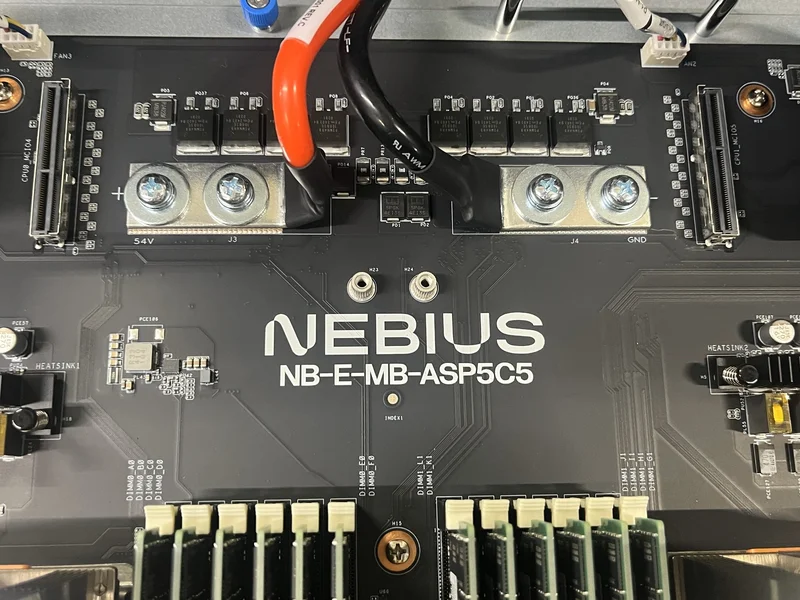Nebius Token Factory: Taking on Microsoft and AWS? Seriously?
Nebius Token Factory: Another AI "Revolution" or Just More Hype?
So, Nebius, huh? Never heard of 'em until today. Apparently, they're launching some "Token Factory" thing that's supposed to revolutionize AI inference. Right. Because that's exactly what the world needs – another platform promising the moon. Let's dig into this PR-speak and see what's actually there, shall we?
The "Revolutionary" Claims
Okay, so they're saying this Token Factory lets you "deploy and optimize open-source and custom models at scale with enterprise-grade reliability and control." Sounds impressive, doesn't it? But what does it mean? It means they're trying to muscle in on the AI cloud market, going head-to-head with the big boys like AWS and Microsoft. Which, offcourse, is ambitious, to say the least.
They're boasting about supporting all the "major open models" like DeepSeek, Llama, and even OpenAI's GPT-OSS. And, get this, they'll even let you host your own models. Wow, groundbreaking. Seriously, isn't that what everyone else is already doing? What's the real differentiator here?
And then there's the speed claim: "sub-second latency, autoscaling throughput, and 99.9% uptime." Okay, color me skeptical. Every company claims that. Show me the benchmarks, the real-world performance data, the actual proof that this isn't just marketing fluff. Because I've seen enough "revolutionary" platforms crash and burn to fill a small landfill.
The "Open Source" Angle
Nebius is trying to play the "open source" card, positioning themselves as the antidote to closed, proprietary models. They're saying that relying on closed models creates "scaling bottlenecks." Maybe. But open source ain't a magic bullet, either. It comes with its own set of headaches: security vulnerabilities, lack of support, and the constant need to tinker and customize.
And let's be real, most enterprises don't want to deal with that. They want a plug-and-play solution that just works. So, who is this really for? The bleeding-edge startups who are comfortable rolling their own solutions? Or the big corporations who just want to check the "AI" box without actually understanding what they're doing?
I mean, Prosus, a company behind "leading lifestyle and e-commerce brands" supposedly got "up to 26x cost reductions." Okay, even I know that sounds fishy. What were they paying before? And what corners did they cut to get those savings? I'm not buying it.

And then there's the obligatory Hugging Face partnership. Because every AI company needs to be seen as best friends with the open-source community. But how much of that is genuine collaboration, and how much is just marketing? I'm gonna go with mostly marketing...
The Nebius Backstory
So, apparently, Nebius split off from Yandex after the sanctions in 2024. Interesting. So, they're trying to rebrand themselves as a "neocloud provider" with data centers in the US, Europe, and Israel. Good for them. But does that make them any different from the other hundred-odd cloud providers out there? Are you a robot?
Roman Chernin, the co-founder, says they don't want to be "merely a utility company." He wants to bring in more customers with a "wider array of products." Okay, that's just corporate speak for "we want to make more money." Which, hey, fair enough. But don't pretend you're doing it for anything other than profit.
And they're also bragging about their "full-stack AI infrastructure" and "proprietary software and hardware." Which probably means they're using custom ODM chassis to lower costs. Dylan Patel from SemiAnalysis seems impressed. But I'm not easily swayed by industry analysts. They all have their own biases and agendas.
Just Another Face in the Crowd?
Look, I'm not saying Nebius Token Factory is a complete scam. Maybe it's a decent platform. Maybe it can deliver on some of its promises. But I've seen this movie before. A new AI company comes along, makes a bunch of bold claims, gets some initial buzz, and then fades into obscurity.
The AI landscape is already crowded. There are dozens of companies all vying for the same slice of the pie. And most of them are just selling variations on the same basic themes: faster inference, lower costs, more flexibility. So, what makes Nebius any different? What's their unique selling proposition?
Honestly, I don't see it. They're just another face in the crowd, trying to grab some attention in a market that's already saturated. Maybe I'm wrong. Maybe they'll actually pull it off. But I wouldn't bet on it.
